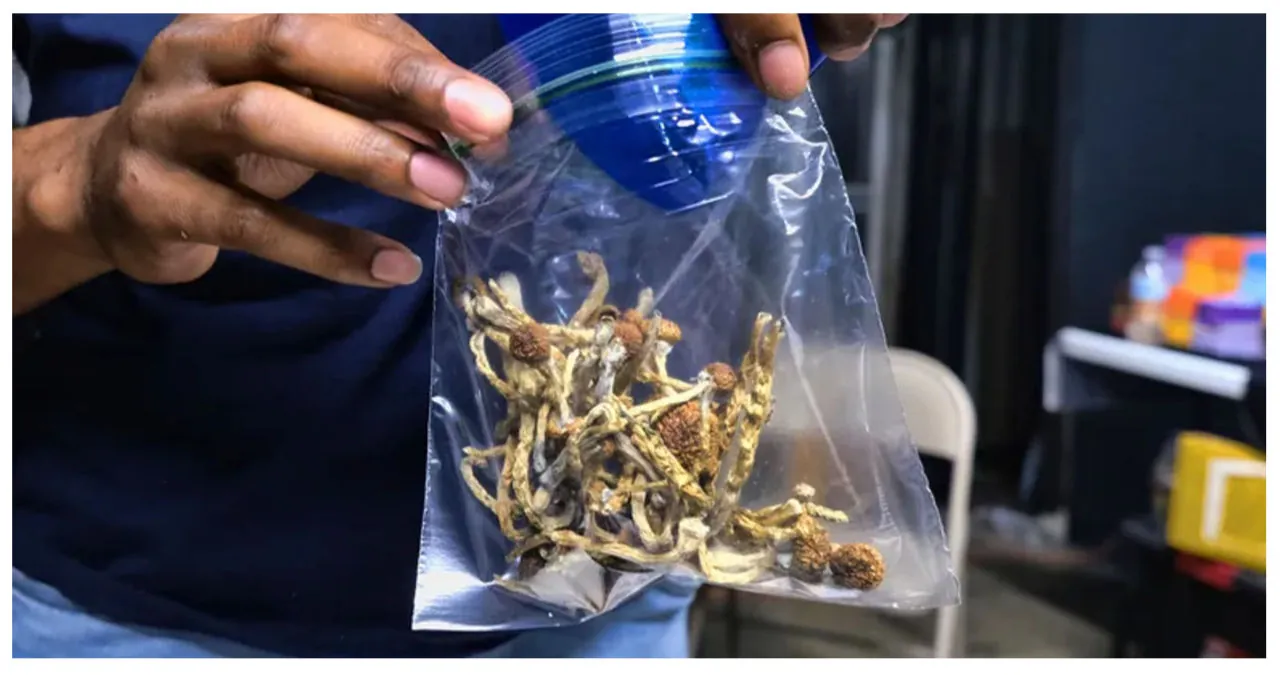A bipartisan bill was introduced on Tuesday by two California lawmakers to address the mental health and substance use crises in the state. The bill proposes that individuals who are 21 years old and above be permitted to consume psychedelic mushrooms under the supervision of professionals. This initiative aims to provide a regulated and controlled environment for individuals seeking alternative treatments for their mental health conditions.
After years of stalling, Democratic Sen. Scott Wiener’s proposal to decriminalize the possession and personal use of plant-based hallucinogens, including psychedelic mushrooms, finally made it through the legislature. However, Democratic Gov. Gavin Newsom vetoed the legislation last year, contrary to his previous support for legalizing cannabis in 2016. In his veto message, Newsom urged lawmakers to focus on developing therapeutic guidelines and regulations.
Wiener and Republican Assemblymember Marie Waldron have joined forces to propose a new bill that would permit individuals to consume psilocybin, the hallucinogenic compound found in psychedelic mushrooms, under the guidance of a licensed therapist. The bill also aims to include other substances such as dimethyltryptamine (DMT), MDMA, and mescaline.
Colorado and Oregon have taken the progressive step of decriminalizing psychedelic mushrooms and implementing regulated frameworks for their therapeutic use. Similarly, in California, cities like San Francisco, Oakland, and Santa Cruz have adopted a stance of effective decriminalization, ensuring that individuals cannot face arrest or prosecution for possessing limited quantities of these plant-based hallucinogens.
During a news briefing on Monday, Senator Wiener expressed his understanding of the mental health and addiction challenges faced by Californians. He emphasized the potential of psychedelics, especially when used alongside therapeutic support, as a valuable tool for individuals to regain their health. Wiener further highlighted the positive impact that these substances have had on California veterans and first responders, and expressed his belief that more people can benefit from their use.
Waldron, the lawmaker who proposed an alternative bill to explore the potential of psychedelic therapy, expressed that the bipartisan legislation is in line with Newsom’s vision as it establishes protective measures for the practice. Under this bill, individuals seeking psychedelic therapy would undergo a thorough screening process to assess their suitability for consuming hallucinogens, and would also participate in follow-up evaluations.
According to Waldron, the bill aims to change the way the state deals with mental health crises, moving away from a focus on punishment and criminalization.
According to Wiener, California is home to a significant number of underground therapists who offer psychedelic therapy services. With the new bill, these therapists will be brought into the mainstream by establishing a state licensing board to regulate their practices.
Under the current legislation, personal possession and use of the substance is not permitted. This means that individuals are unable to purchase the drugs for personal consumption. It is important to note that even though these substances may be legalized on a state level, they still remain illegal under federal law. Senator Wiener, recognizing the potential delays in federal action, is proposing that state lawmakers take matters into their own hands and authorize regulated psychedelic use, just as they have done with the therapeutic use of cannabis for treating conditions like cancer or HIV.
Psychedelic mushrooms, once hailed as a mind-altering substance during the 1960s, have been utilized for centuries, and potentially even millennia, in religious and spiritual rituals in various cultures. There is growing interest among researchers regarding the potential therapeutic benefits of substances like psilocybin in addressing conditions such as depression, anxiety, and post-traumatic stress disorder. Recognizing its potential, the Food and Drug Administration (FDA) classified psilocybin as a “breakthrough therapy” in 2018 and released preliminary guidelines last year to aid researchers in designing clinical trials involving psychedelic drugs.
The Heroic Hearts Project, a nonprofit organization assisting veterans in healing from trauma, is sponsoring the bill. Juliana Mercer, a Marine Corps veteran and board member of the Heroic Hearts Project, shared her personal experience of using psychedelics to manage her PTSD. She mentioned that she had participated in programs outside of the United States. Recently, her organization facilitated a trip to Oregon for a group of veterans to utilize regulated psilocybin treatment.
Mercer emphasized the importance of education and regulation in ensuring the safety of individuals involved in certain activities. He stated, “Through education and through regulation, we’ll be able to take people from doing this underground, where it may not be safe, into a place where they can do it safely.”
According to her, this will provide them with the opportunity to seek the healing they deserve without having to worry about facing any negative consequences.
The bipartisan bill this year has gained support from the California Coalition for Psychedelic Safety and Education, a group that was previously against the decriminalization of psychedelics. Susan Sagy, the executive director of the group, believes that this approach strikes a balance between the potential benefits of therapeutic treatment and the potential risks to public health.
Supporters of the bill estimate that it would require a time frame of 18 to 24 months to put the program into effect, assuming it gets passed as a law. Additionally, the bill aims to establish an education program aimed at diminishing the negative connotations associated with psychedelics.
Read More:
- Carnival Cruise Ship Comes to the Rescue of 2 Men Whose Boat Sank in the Gulf of Mexico
- Hospitals Reinstate Mask Mandates as COVID Hospitalizations and JN.1 Variant Spread Increase

